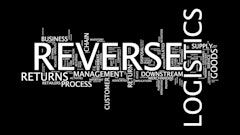
In recent years, the traditional image of “The Supply Chain” has changed beyond all recognition. It is no secret that supply chains are becoming increasingly strategic and complex. Regardless of the size or scale of a company’s business, having a well-functioning supply chain is critical for operational and organizational success.
Today’s supply chains have evolved. From simple connections between organizations and their suppliers, they have become supply chain networks. You can think of supply chain network as a combination of locations–suppliers, customers, factories, warehouses–and the logistics and transportation to move materials and products between them. Supply chains are all-encompassing and involve hundreds or thousands of external suppliers, partners and third parties, and are increasingly forced to keep pace with the many economic, political and regulatory pressures.
One of those pressures is the need to meet customer expectations for ethical and sustainable operations. The new generation of Gen Z and millennial consumers differ largely from other generations past. These groups place a heavy importance on the source of the products they want to purchase, as well as how and where they are created. These consumers are willing to pay more for products that are both ethical and sustainable. A survey by Accenture found over half of those within this cohort are even likely to boycott brands that don’t reflect their values or beliefs, making it more imperative than ever that supply chains adapt to the new changing values of their consumers.
Defining the ethical supply chain
To put it simply, the ethical supply chain delivers the highest levels of ethical and sustainable operations. Achieving an ethical supply chain requires organizations to be aware of who they are working with and puts the responsibility with the organization, as much as the partner or supplier, to ensure all supply chain partners operate accordingly.
The ethical supply chain spans across three areas—economic, environmental and social responsibility—and has a particular focus on:
• Removal of child and slave labor
• Safe and hygienic working conditions
• Adequate and equal pay, including acceptable working hours
• Anti-bribery and corruption
• Ethical sourcing and procurement
• Environmental awareness and sustainability
Given the complex nature of global supply chains, the onus of ensuring ethical operations falls on everyone, including the company’s employees, suppliers, customers and trading partners. Companies need to have full visibility and transparency across the supply chain, as it’s easy to lose track of what is happening and become a business that claims to be ethical, despite having unethical practices in its supply chain.
The responsibility of everyone: Why being ethical is important
Globalization has provided businesses with the ability to produce affordable products and services at scale. This, in turn, has resulted in an environment which is global, multi-tiered and extremely diverse in terms of regulatory standards. In such an environment, it’s easy for unethical practices to happen without a brand’s knowledge.
However, with more conscious and informed consumers taking notice of unethical and non-sustainable practices, companies need to be more transparent and aware of their practices, as it has the potential to negatively impact brand image, loyalty and ultimately loss of business.
In complex global supply chains, ensuring ethical operations is everyone’s responsibility. Employees, suppliers, customers and trading partners; each has a vital role to play. For a major organization, it’s no longer enough to know what your supplier is doing; you need to know what their supplier is doing, and their supplier’s suppliers, and so on. In the current landscape, this knowledge can contribute to a competitive edge for businesses.
Supply chains are no longer simply a means to an ends; for many companies, they remain strategically placed to drive business initiatives and improve customer experience. Delivering on customer experience means understanding those needs and expectations. Today, sustainable and ethical practices are key differentiators and could be the deciding factor in a buying decision and earning long-term brand loyalty.
But, in order to benefit from such differentiators, a company needs to have a clear view and understanding of its suppliers’ operations – even at the start of a contract before any transactions occur. Without this, it can be nearly impossible to monitor and manage supplier performance against a backdrop of continually evolving environmental, market and regulatory conditions.
The new boardroom priority
The more informed customers are, the more questions they ask. Customers want to know about the products that they are purchasing and the vendors that they buy from. Vendors need to be able to answer these questions, or risk damaging their reputation or developing a reputation for lacking transparency.
This has paved way to a new boardroom objective: complete and total transparency. Thanks to modern technologies, companies can no longer absolve themselves of responsibility for what happens in their supply chains. The transparency and visibility that supply chain professionals worldwide can build into their operations are exactly what is needed to ensure ethical policies and practices are being followed.
The key to achieving this level of transparency is information. An organization must be able to access information on their suppliers and their activities. They must also be able to make that information accessible to partners and customers. This means adopting innovative technologies to capture data linked to an ethical strategy from all areas of the supply chain. Achieving this requires a company to digitize the flow of data and transactions between everyone in the supply chain.
It’s no wonder that an Accenture CEO Study of Sustainability discovered that 50% of business leaders see big data analytics as the technology most likely to help them to be more sustainable. After all, brands cannot sell stories of ethics and suitability if they cannot see the exact routes their products take, from creation to market, for themselves.
Welcoming in the ethical era
With increasing expectations from customers for business enterprises to do the right thing, there’s more pressure now than ever before for organizations to engage in ethical practices, directly or indirectly. With modern technology, even the most complex of supply chains can be simplified to allow for greater transparency, visibility, and accountability. Organizations must invest in both the right technology and skills to ensure their supply chains are both modern and ethical. The ethical supply chain has very quickly moved from a ‘nice to have’ to a ‘must have’ for every organization. Those that invest in the technologies that enable them to monitor operations and provide transparency to both their customers and suppliers are investing in their own future and will inevitably come out on top.


















